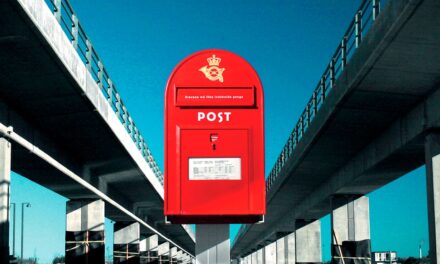
Hitting the post: interview with Adam Crozier, Chief Executive Royal Mail
When the teenage Adam Crozier was on trial for Hibernian and playing for the Edinburgh team's reserves he recalls bursting into the penalty area, being fouled by a huge centre back and immediately getting up and going for goal.
His manager, Bertie Auld, the legendary, hot-headed former Celtic midfielder, was incandescent. In language that might make even Alex Ferguson blush he told Crozier he was an "eejit" for failing to go for the penalty – and ordered the entire team to turn up for special training the next day . . . in cheating.
Crozier never made it on the pitch: this slim, neat, logical, almost unemotional man was too small for the rough and tumble of the game. But, off the pitch, he made a huge name for himself as the modernising chief executive of the Football Association who brought in an outsider, Sven-Goran Eriksson, as England manager and tried to drag the FA out of the dark ages.
These days he's trying to do the same for Royal Mail, an organisation his chairman Allan Leighton, a Leeds United director, has likened to an unreformed Soviet state. And you sense at once, as he sits sweating even in his fifth-floor office in London's East End, that it's a very uncomfortable – and much bigger – challenge.
Crozier, after a seemingly effortless career that saw him made chief executive of Saatchi & Saatchi at just 31 and FA chief at 36, is still five months off his 40th birthday and looks much younger. But his discomfort, beneath the cool logician exterior, stems from two factors. First, his three years at Soho Square for the FA are, partly through the machinations of the sharks at the Premier League who engineered his departure, being re-examined critically. For a man charged with helping to take more than pounds 1bn out of Royal Mail's costs he's accused of being profligate at the FA, overseeing a 30% rise in average salaries and leaving his successor the task of culling 20% of staff.
Crozier's lips are sealed: he's bound by confidentiality agreements. But his friends – and he retains many in soccer, including Sven – point out that he increased FA turnover by 250% during his tenure and the much-vaunted extravagant salary bill was 10% of that turnover – compared with 80% or more at the bulk of Premier League clubs.
Biggest challenge
He's unconstrained about the biggest challenge of his career: the threat of the first national postal strike since 1996 over pay and job losses. It's not just that the scale of the organisation he heads is colossal compared with Saatchis or the FA. If the 160,000 postal staff in the CWU union go on strike Royal Mail's "renewal plan", designed to deliver pounds 400m profits in 2004-05 compared with pounds 1.2bn losses in 2001-02, will be blown out of the water.
Crozier, too, has no experience of such high-risk industrial relations, especially with a CWU noted for its chaotic organisation, and is relying on expert guidance – and the conciliation service Acas which has convened talks for Monday.
But he insists that his most significant attribute at Saatchis, the FA and, now, Royal Mail is in bringing change to "people-based" businesses. "The bit I have always enjoyed is driving and managing change through people," he says, pointing out that he took over at Saatchis the day Maurice and Charles left with half the business – and he turned it around.
"I think I'm calm under pressure, I don't get fazed, I always work hard to keep things simple so people understand what we are doing and why we are doing it. It's also important to give people a sense of direction . . . People will only change if they see where that change is taking them. The thing that everyone wants from you is the truth, good or bad. People often delay bad news, thinking it's the kind thing to do but actually I think it's cruel."
Crozier insists that the divisions within the CWU are not that great and "there is a general recognition throughout the organisation that the company needs to change".
An introverted control freak, he is the perfect diplomatic foil to Leighton whose raucous, in your face bluntness and impatience would overheat negotiations with the CWU. "If you talk to postmen and postwomen, and I do all the time, they have a good grasp of the problems and understand the need for change and why we have to go through the pain to get there.
"It doesn't mean they like it but the most often said thing to me is: we know these changes need to be made and redundancies need to happen so can we get on with it as we need to get on with our lives. All these changes were agreed with the union executive before their annual conference in June and there's no question, as they put it, of the deal having more strings than the philharmonic."
Crozier insists that the 18-month deal – offering 14.5 a guaranteed pounds 300 a week minimum in exchange for productivity improvements such as cutting the second daily delivery and 30,000 job losses – can and must be in place for the October 1 deadline. That would be a first in recent Royal Mail history.
"What we want to have is a top-quality organisation which provides a fantastic customer service from a highly motivated staff who are fairly rewarded and we think this offer is a step on the way to achieving it," he says.
He acknowledges that the union does not share that view. "But that doesn't mean we've fallen out as the union is joined up with us on all the other issues such as getting the right access charge for our rivals [to use Royal Mail's network] and getting the business fit for competition. So we need to get this right."
Pointing out that Royal Mail has agreed to make up the deficit in its pension fund at an annual cost of more than pounds 100m a year, he says: "We lost pounds 611m last year so that's not a giveaway and it's hard work for us to do it in the state we're in."
The CWU is incensed that the Royal Mail board has awarded itself generous bonuses, including one of pounds 57,000 for Crozier in his first two months. He is unrepentant. "The company is on this enormous turnaround and the results demonstrably improved last year and people were set very clear targets which were met . . .It's the right way to go, paying for change and success and that includes all our staff."
He is, of course, coy about his own prospects of winning up to pounds 3m if the pounds 400m operating profit target is hit – and silent on the reported pounds 750,000 pay-off he got from the FA. Though he just about acknowledges that this might cause resentment, he is adamant that the rewards system in place "helps pull the whole team together, from the top to the bottom".
A strike would, clearly, be a personal blow to an executive whose favourite word, apart from "focused", is the very New Labour "delivery". Royal Mail delivers 80m letters and parcels a day but Crozier says: "If you look at most really big businesses, people at the top will tell you it's 10% strategy and 90% delivery.
"The big problem is that we don't deliver – if you'll pardon the pun . . . So what we have to do is get all our people galvanised into really delivering for us and we've got some fantastic people out there.
"The one thing that strikes me is the sense of pride among people working here, the amount of goodwill among the customers and the desire to get it right."
Ultimately, if Royal Mail returns to profit and starts paying dividends again to the Treasury, Crozier concedes that the government might turn its thoughts to the corporation's future status.
10-year plan
"But that's not for us. In a year, we may have to sit down and start thinking about what happens next. That's not a cop-out, just genuinely where everyone is: this is not just about achieving the recovery plan but putting Royal Mail in shape to compete over the next 10 years, and we, the management team, have to deliver the results."
It's the closest he'll come to talking football, apart from a few perfunctory remarks about how Roman Abramovich has unsettled the moves to bring new realism into wages and transfer fees with his spending spree at "Chelski".
Soccer teams, he knows, are judged – and condemned – by their results every Saturday. Royal Mail – "an industry which absolutely hooks you, a national institution, like football, that touches everyone in the country" – has still got 18 months to deliver its results. A strike would see it, and Crozier, flirting with relegation to the no-hopers. No wonder he's sweating.
guardian.co.uk/post
The CV
Born : January 26 1964, in Bute
Education : Graeme High, Falkirk; Heriot-Watt University, Edinburgh (business organisation degree)
Career : Mars Pedigree, graduate trainee; Telegraph Group; Saatchi & Saatchi, 1988-1999, becoming joint chief executive, 1995; chief executive, FA, 2000-2003; chief executive, Royal Mail, February 2003.
Family : Married to Annette, two daughters, Molly (7) and Grace (5)
Interests : Football (Celtic), golf, music (Van Morrison)
(c) The Guardian










![Citizens Advice: We continue to see millions of people chasing lost parcels [and] having their accessibility needs ignored](https://postandparcel.info/wp-content/uploads/2020/12/parcels-440x264.jpg)

